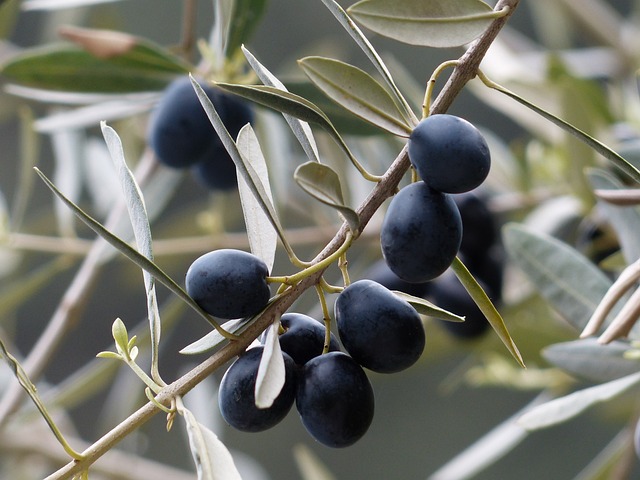
Olives have been a popular ingredient in Mediterranean cooking for many years. They are not only delicious but also have health benefits. Olives contain nutrients and antioxidants that can help improve heart health and overall well-being.
Health Benefits of Olives
- Rich in Monounsaturated Fats
- Olives are a great source of monounsaturated fats, which are known to be heart-healthy. These fats can help lower bad cholesterol levels and reduce the risk of heart disease.
- High in Antioxidants
- Olives are rich in antioxidants, such as vitamin E and polyphenols, which can help protect cells from damage caused by free radicals. This can reduce the risk of chronic diseases like cancer and Alzheimer’s.
- Anti-Inflammatory Properties
- The compounds found in olives have been shown to have anti-inflammatory effects, which can help reduce inflammation in the body and lower the risk of chronic diseases.
- Supports Digestive Health
- Olives are a good source of fiber, which is important for digestive health. Fiber helps promote regular bowel movements and can reduce the risk of constipation.
- Rich in Vitamins and Minerals
- Olives are a good source of vitamin E, iron, copper, and calcium, all of which are important in maintaining overall health.

Incorporating Olives Into Your Diet
There are many ways to incorporate olives into your diet. You can add them to salads, pasta dishes, or pizza. You can also use them as a topping for sandwiches or blend them into a tapered for a flavorful dip. Olives can also be enjoyed on their own as a snack.
Nutrition
Here is a basic nutrition table for olives, based on a serving size of 100 grams (3.5 ounces) of ripe, canned olives:
- Calories: 115
- Protein: 0.8 grams
- Fat: 11–15 grams (depending on the type of olive)
- Carbohydrates: 6.3 grams
- Fiber: 3.2 grams
- Sugars: 0 grams
- Calcium: 88 milligrams
- Iron: 3.3 milligrams
- Magnesium: 11 milligrams
- Phosphorus: 3 milligrams
- Potassium: 8 milligrams
- Sodium: 1556 milligrams
Black Olives

Black olives, also known as ripe olives, are olives that have fully ripened on the tree before being harvested. They are typically dark purple to black and have a milder, less bitter flavor compared to green olives.
Black olives are rich in monounsaturated fats, which are considered heart-healthy fats that can help lower bad cholesterol levels. They are also a good source of vitamin E and iron.
In culinary terms, black olives are often used in Mediterranean cuisine, such as in salads, pizzas, pasta dishes, and as a topping for various foods. They can also be eaten on their own as a snack or appetizer.
Black Olives vs. Green Olives
Here’s a comparison table between black olives and green olives based on their taste, texture, nutritional content, and culinary uses:
| Feature | Black Olives | Green Olives |
|---|---|---|
| Taste | Milder, less bitter | More bitter |
| Texture | Soft, tender | Firm |
| Color | Dark purple to black | Light green to bright green |
| Nutritional Content per 100g | ||
| Calories | 115 | 115 |
| Fat | 11-15g | 11g |
| Carbohydrates | 6.3g | 4.8g |
| Fiber | 3.2g | 3.3g |
| Sugars | 0g | 0.5g |
| Protein | 0.8g | 0.8g |
| Vitamin E | Good source | Lesser source |
| Vitamin A | Lesser source | Good source |
| Iron | Good source | Lesser source |
| Sodium | 1556mg | 1556mg |
| Culinary Uses | Salads, pizzas, pasta dishes | Tapenade, martinis, cooking |
Please note that nutritional content can vary based on the variety and preparation of the olives.
Summary
Olives are not only delicious but also incredibly nutritious. Their rich flavor and numerous health benefits make them a great addition to any diet. Whether you’re looking to improve your heart health, boost your immune system, or simply add more variety to your meals, olives are a great choice. So why not start incorporating more olives into your diet today?
